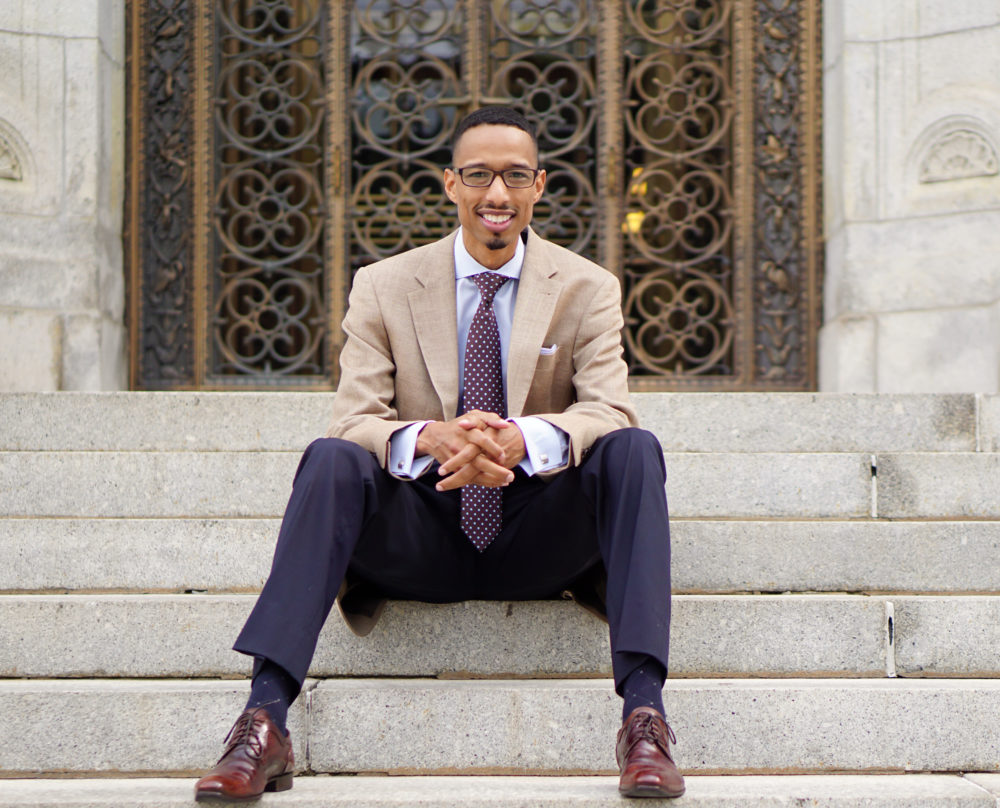
African American Studies (AFAM) Associate Professor and Department Chair Stefan Bradley is passionate about advocating for social justice and creating learning environments that engage students in deeper ways. Through interdisciplinary coursework, he aims to shape a cadre of thought leaders who will responsibly and respectfully advance opportunities for the Black community.
Bradley’s approach is personalized and disarming. “Because AFAM is a small department, we can wrap our arms around our majors/minors to challenge and nurture them in equal measure,” he says. “We do small things like regularly provide food and snacks for our students while also sharing academic advice and career recommendations. We are feeding bodies and minds in AFAM!”
AFAM is also using formal and informal research opportunities to help students identify interests and then develop those interests into lifelong passions. “We are bringing students to our national convention to expose them to the latest scholarship and trends in the field. Hopefully, the process of becoming a scholar will be demystified,” he says.
Perhaps Bradley’s goal to “demystify” higher education is rooted in his own experience of entering Gonzaga University. He grew up in Yakima, Washington the son of southern transplants. His father worked in a saw mill and his mother at the light company. Both parents worked extra shifts to send him to Catholic school. Even though his parents and older brothers had not attended college, there was a clear expectation that Bradley and his sister would.
“I actually came to the academy on a humbug; I can assure you it was not forethought or plan that precipitated my arrival,” he says.
At Gonzaga, Bradley was one of less than 15 black students. But, they supported each other and also had staff members of all races who were deeply invested in their success. Bradley’s formation as an academic began in a history course where he identified with an energetic professor.
“He bounced around the classroom, making jokes of figures from the past and students. I knew right then I could do what he did, so I asked the professor after class to tell me how to be him and his response was that I could be better than him,” recalls Bradley.
Bradley experienced the true meaning of magis from that professor and others who helped prepare him to enter graduate school at Washington State University. After earning his master’s degree in history, he went on to complete his Ph.D. at the University of Missouri.
Bradley came to LMU in fall 2017 from Saint Louis University. He enjoys being a part of the Bellarmine College of Liberal Arts where student engagement and a passion for faith that does justice are greatly valued. Because of the way that the field of Black Studies came about in the 1960s, AFAM has always embodied the teacher-scholar model with a heavy focus on social justice.
“That means what we do is not for our own self-aggrandizement but for those who came before us and those whom we have not yet met,” he says.
As 2018 marks the 50th anniversary of the first recognized Black Studies department in the nation, Martin Luther King, Jr. and Robert Kennedy’s assassinations, and numerous famous student rebellions, Bradley is looking forward to examining student/youth mobilization and the role it plays in our pursuit of a more just society. In the fall, he will teach Introduction to African American Studies and an upper-level course, Black Students/Youth Activism.
Also slated for fall 2018 is the release of Bradley’s next book titled “Upending the Ivory Tower: Civil Rights, Black Power, and the Ivy League.” His current research focuses on how black faculty, staff, and students can help re-shape policies and trajectories in colleges and universities.
“The knowledge that we have gained, and that which we produce, does not belong to us. So we must share as much as possible,” he says.
Looking ahead, AFAM plans to engage in more ambitious community outreach in an effort to paint a richer and more complex portrait of America for us all.



